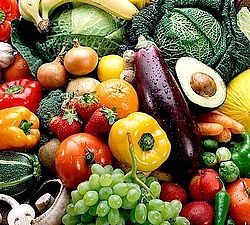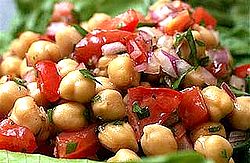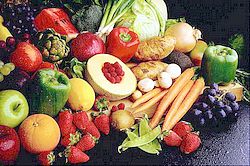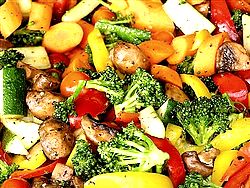Q&A: Can Athletes Perform Well and at Their Best on a Vegan Diet?
Vegan diets have become a very popular amongst the general population. A group of body-builders have paved the way for showing the vegan diets do not restrict athletic performance in demanding sports and activities. But what about athletics and demanding events such as triathlons and marathon running? Are there any special precautions that vegans should take to ensure their performance is not restricted? This article will answer these questions and provide tips for may it work and to prevent any performance restrictions.
Can a vegan diet actually make someone perform better as an athlete?
There is not enough research on athletic performance for vegetarians and vegans to really answer this. Vegan body builders are very competitive and this should indicate that athletic performance can be achieved irrespective of diets when muscle building appears to be unaffected. There is some evidence that vegans especially have to ensure that they are getting all the right nutrients. Some nutrients such as creatine, that you get only from meat may have to be taken in supplements, just to make sure. Adequate creatine helps during short intense bursts of exercise like sprinting. Supplementation isn’t always necessary. People who train hard and well can get the results on any diet.
Can Vegans who are training hard get enough protein to avoid losing muscle mass?
Vegetarians who eat dairy products and eggs which are rich sources of protein are obviously better off than vegans. But vegans can still get enough protein and essential amino acids by carefully ensuring they eat enough of the right kinds of vegetable protein in grains, nuts, soy products and other foods. People who do their homework and carefully watch what they eat can meet all their needs. The big issue is vitamin B12, which is found only in meat. B12 is crucial for endurance athletes, because it is linked with it red blood cell production. Sufficient amounts of B12 can be taken through supplements and many cereals and soy milks are now fortified with B12. Again taking care with the details is the key.
Of course vegan athletes have to be very diligent about protein and amino acid intake and can not simply assume that every combination of protein sources will be adequate. Athletes need to know how much protein they require and work out whether they will get enough in their diets. Women athletes need about 90 gm of protein a day, and less active women about 60 gm a day. You don't have to eat cupfuls of chickpeas or a quarter of a whole cake of tofu, but you do need to eat a variety of foods that will provide your protein requirements. The table below summarizes the protein requirements for various types of male and female athletes.
| Group | Protein intake for males (g/kg/day) | Protein intake for females (g/kg/day) | Average Male (90 kg) g/day | Average Female (80 kg) g/day |
|---|---|---|---|---|
| Sedentary men and women | 0.9 | 0.8 | 81 | 61 |
| Elite male endurance athletes | 1.6 | 1.4 | 144 | 109 |
| Moderate-intensity endurance athletes | 1.2 | 1.0 | 108 | 82 |
| Recreational endurance athletes | 0.9 | 0.8 | 81 | 61 |
| Football, power sports | 1.5 | 1.3 | 135 | 102 |
| Resistance athletes (early training) | 1.6 | 1.4 | 144 | 109 |
| Resistance athletes (steady state) | 1.1 | 0.9 | 99 | 75 |
Can you get your protein throughout the day rather than in a single meal?
Even though the advice given is usually about eating a variety of protein sources for the one meal, there is no reason why you should not spread these portions throughout the day. The table below shows you how to get 10g of protein from a variety of sources (plant and animal).
| Plant Foods | Animal Foods |
|---|---|
| 4 slices (120 g) wholemeal bread | 2 small eggs |
| 3 cups (90 g) wholegrain cereal | 30 g (1.5 slices) reduced fat cheese |
| 2 cups (330 g) cooked pasta | 70 g cottage cheese |
| 3 cups (400 g) cooked rice | 1 cup (250 ml) low-fat milk |
| 3/4 cup (150 g) lentils or kidney beans | 35 g lean beef, lamb or pork (cooked weight) |
| 200 g baked beans | 40 g lean chicken (cooked weight) |
| 120 g tofu | 50 g grilled fish |
| 60 g nuts or seeds | 50 g canned tuna or salmon |
| 300 ml soy milk | 200 g reduced fat yoghurt |
| 100 g soy meat | 150 g light fromage frais |
Is it hard for an athlete who is training hard to get enough calories from a vegan diet?
This is not difficult at all. A good tip for boosting calories is to drink juice such as pomegranate juice, grape juice, tart cherry juice. They all provide heaps of calories and are great after training. Loading up on carbohydrates a couple of days before a marathon can be done just as easily on a vegan diet by focusing on pasta or pizza.
Will vegan or vegetarian diets tend to may athletes lose weight or muscle mass?
The overall conclusion from the studies that have been done suggests that vegetarians tend to weigh about 6 to 10 pounds (3-5kg) less than meat eaters with the same body type. But this is probably due to biases in sampling as vegetarians tend to be more health conscious to start with and this may not be related to diet. People can overeat and get fat on a plant-based diet. Vegans and vegetarian are just as prone to obesity through eating poor diets and junk food as those who eat meat. So vegans still have to make healthy food choices. Many highly successful body builders are vegan and so maintaining muscle mass is not really and issue though it is harder for vegans.
Should athletes become vegans to improve their performance?
The answer to this is probably no because it is harder for vegans to maintain a healthy diet and to get enough key nutrients such as vitamin B12 that are only found in meat.
What is an ideal diet for Vegan Athletes?
Vegan athletes should consume a well-balanced diet and put some time into planning what they eat, but they should not become overly concerned about nourishment. Just make sure the basic essential components such as amino acids and protein are dealt with. After that it is simply a matter of ensuring that you consume a wide variety of foods, and enjoy cooking meals and enjoying your food.
The key aspects are:
- Getting sufficient protein from a wide variety of source, like nuts, beans, soy goods, and whole grains.
- Do some research about sources of iron and essential amino acids.
- Eat foods that are supplemented with vitamin B12 and vitamin D. This includes nutritional yeast, fortified soymilk and cereals. Getting out in the sunshine is also important.
- Female athletes on a vegan diet should be particularly careful to get sufficient iron in their diet or take supplements.
- Fresh fruit smoothies utilising soy milk and other fresh food item are a great way to boost your energy and protein intakes.



